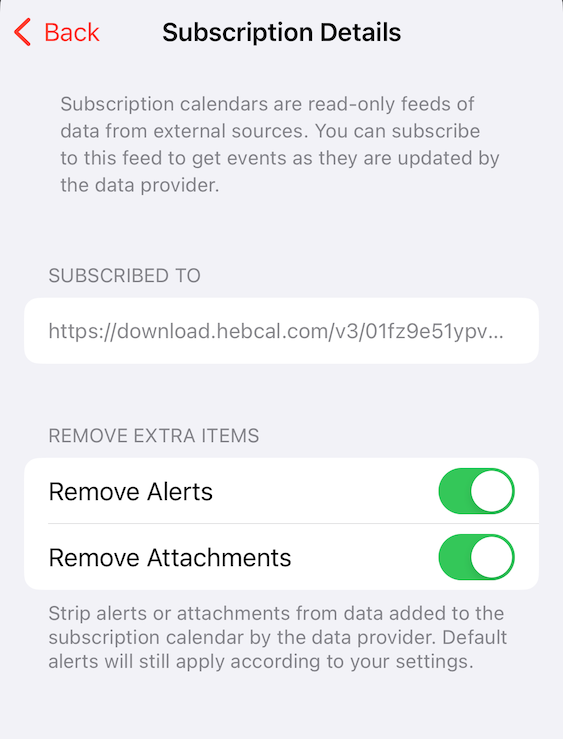This article describes how to make changes to a Yahrzeit + Anniversary calendar that you downloaded, exported or subscribed to in a calendar app like Outlook, Google Calendar / Android, or Apple (iOS, iPhone, iPad or Mac). These instructions apply to personal events such as yahrzeits, Hebrew Birthdays, and Hebrew Anniversaries.
1. I have a Hebcal calendar feed subscription
If you used Hebcal to create your personal calendar after August 2020 and you subscribed using the recommended feed option, you can click on the hebcal.com URL at the bottom of any calendar event in the feed to make changes or add additional names.
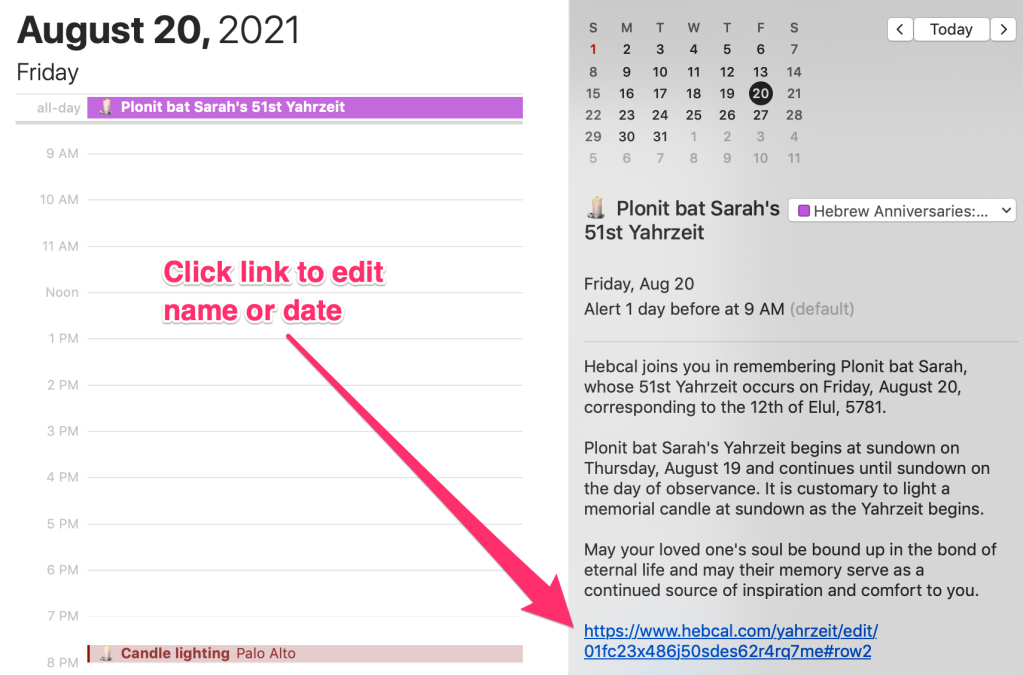
Visiting that link will take you back to the Yahrzeit and Anniversary calendar where you can make edits to each person’s name or dates. You can also use that link to add additional names and dates to the same calendar.
After making edits, please be sure to scroll to the bottom of the page and press the Update Calendar button.
Please note: since you have previously subscribed to the Hebcal calendar via a 3rd party calendar app such as Apple, Google, or Microsoft Outlook, you do not need to resubscribe to the calendar feed. Any changes you make on the Hebcal.com website will automatically be updated in the calendar feed and show up in your 3rd party calendar app, typically about 24 hours after the change is made on the Hebcal.com site.
If you have a calendar feed, but you don’t see a www.hebcal.com URL at the bottom of the event description, then you either have a pre-August 2020 calendar feed (see topic 4 below) or you downloaded a copy of the calendar events (see topic 3 below).
2. I have a Hebcal annual email reminder subscription
If you subscribed to annual email reminders, you will find an “Edit Yahrzeit” link at the bottom of the annual reminder email message.
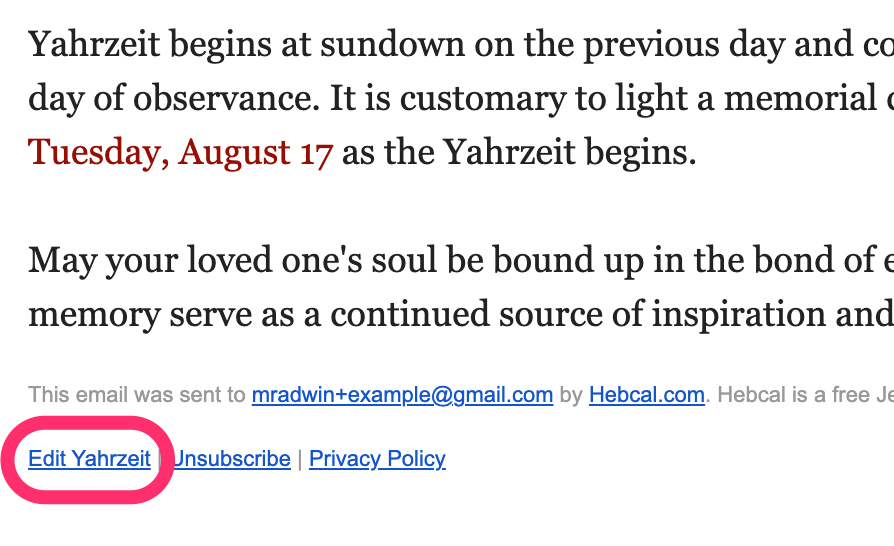
For a birthday, the link will be titled “Edit Hebrew Birthday.” For an anniversary, the link will be titled “Edit Hebrew Anniversary.”
After making edits, please be sure to scroll to the bottom of the page and press the Update Calendar button.
3. I don’t have a separate calendar feed; I merged Hebcal anniversary events into my regular personal calendar
You may have downloaded yahrzeit/anniversary events and merged them into your regular personal calendar (often called “Home”, “Calendar”, “Events”, or sometimes your name).
To remove those events, search for the event(s) in your regular calendar and remove/delete them one at a time. These events will always have one of the following titles: “Yahrzeit”, “Hebrew Birthday” or “Hebrew Anniversary”.
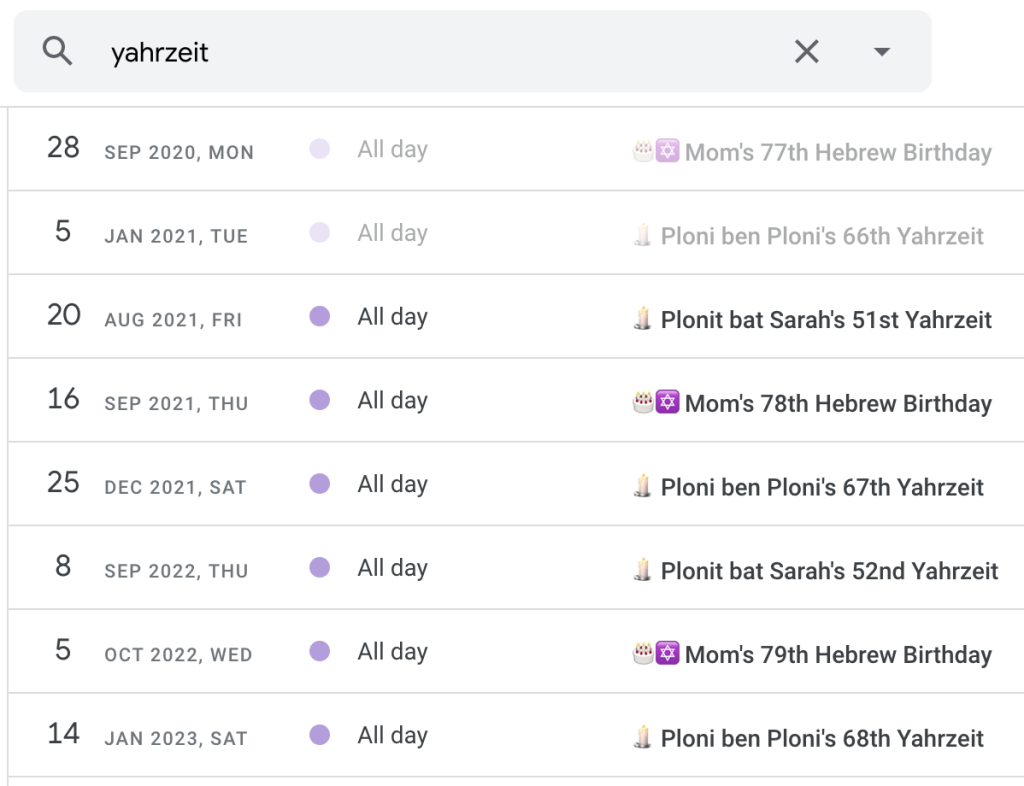
Once you have removed the yahrzeit/anniversary calendar events, return to Hebcal.com and re-enter in all of the event details, then download again.
4. I subscribed to a calendar feed before August 2020
If you subscribed to a Hebcal Yahrzeit + Anniversary calendar feed with 3rd party calendar app such as Apple, Google, or Microsoft Outlook before August 2020, you will need to delete or unsubscribe the calendar containing your yahrzeit and anniversary reminders.
Hebcal personal event calendars created before August 2020 do not support editing event dates or names. For these older calendar feeds, the only way to make changes is to delete the calendar feed and start over from scratch.
Directions for how to delete/remove a subscribed calendar vary by calendar application.
4.1. How do I know if I subscribed to a calendar feed before August 2020?
You can determine whether the calendar feed is from prior to August 2020 by looking at the “Subscribed To” URL in your calendar app.
If the URL begins with download.hebcal.com/export/… or it begins with download.hebcal.com/v2/y/… then it is from before August 2020 and the calendar feed cannot be edited.
If the URL starts with download.hebcal.com/v3/… then it is from after August 2020 and may be edited.
All Hebcal personal anniversary calendar subscriptions have a URL that contains download.hebcal.com (see screenshots below).
4.1.1. Google Calendar
- Open Google Calendar: Go to Google Calendar on your computer.
- Access Settings: Click the gear icon (Settings) in the top right corner.
- Select Calendar: On the left sidebar, under “Settings for other calendars,” click the name of the Hebcal calendar you want to examine.
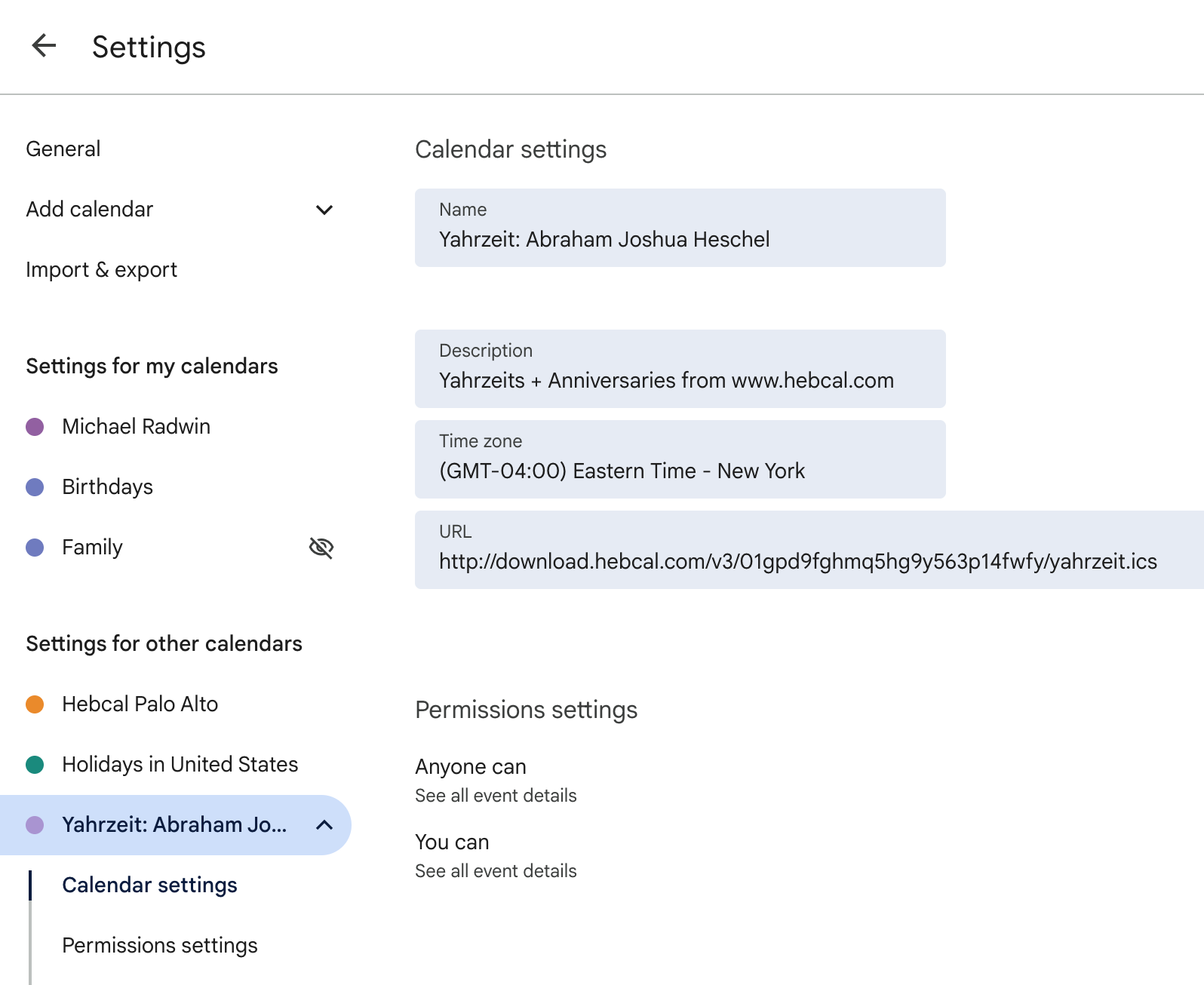
4.1.2. Apple iOS
On iOS, open Calendar. Tap Calendars > the Info button ⓘ > Subscription Details
